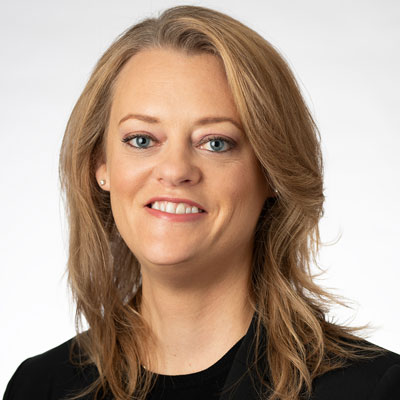
The demands of the senior living customer base are changing, and providers need to support a holistic approach to services — including emotional, social and experiential life services — to help future older adult demographics to “live their best life,” two speakers said Wednesday.
Katie Potter, president and CEO of Five Star Senior Living and a 2020 McKnight’s Women of Distinction Hall of Honor inductee, and Joseph Coughlin, Ph.D., director of the Massachusetts Institute of Technology AgeLab, discussed “Redesigning the Senior Living Environment” during SAGE/2020, the second annual conference hosted by home health provider Honor.
The baby boomer demographic is large, and the demand for services will be great, Potter said, noting that the 85+ population is projected to grow by more than 30% over the next five years. Family caregivers will strain to provide care for their aging loved ones in the future, she added.
“There is a sense of demand out there for services provided to older adults,” Potter said.
But tomorrow’s customer has different needs and expectations from today’s customer, she said. The Silent Generation was more focused on group settings, Potter said, whereas the boomers are more focused on “individual and curated experiences.” Providers will need to keep in mind this generation’s individuality and choices, their desire to maintain a certain amount of independence, and the desire to bring services to the home, whether that is in a senior living community or elsewhere, she said.
Five Star, Potter said, is looking at being a service provider beyond the four walls of its buildings and helping older adults and their caregivers “navigate the challenges presented by the journey of aging.”
The company joined with the MIT AgeLab C3 Connected Home Logistics Consortium to further its understanding of the evolving needs of older adults and the services to support them. As part of that relationship, the company is piloting an intergenerational program to provide opportunities to integrate the company into the external community, offer lifestyle enrichment for residents, and expose local high school students to careers in aging services.
People are living longer and have a new stage of life for experiences, but they need support to “empower that lifestyle,” Potter said. Senior living providers must support a more holistic approach to life services — emotional, social and experiential — to help older adults to “live their best life,” she added.
“The concept of life services that empower a lifestyle and a best life for this stage of an older adult’s life is how we approach acquiring the business of this demographic,” Potter said, pointing to Five Star’s Ageility program — licensed healthcare professionals who offer occupational therapy, speech language pathology and physical therapy as a set of outpatient services.
Although the industry already was transforming to accommodate new customer preferences, COVID-19 was a catalyst to accelerating that transformation, Potter said. As providers evaluate housing and care options and services moving forward, the CEO said that the boomer demographic — and their caregivers — are looking for the ability to live the life they want to live.

The focus of senior living in the future, Coughlin said, needs to be on living.
“It’s about helping people not just maintain their health, but to go out and continue to be engaged and productive and doing things,” he said.
COVID-19, Coughlin said, accelerated the discovery and adoption of technology and services five to 10 year further into the future. Technology, he added, is the new toilet paper: Although people were running to the grocery store for technology when the pandemic hit, they also were stocking up on iPads and other tech items.
Technology, if used correctly, does not help anyone do a job better but “profoundly changes what you do and how you do it,” Coughlin said. Senior living providers have an opportunity to redesign senior living so it’s “not a box with a series of rooms and a common area,” he said. Instead, Coughlin said, operators need to rethink the concept of “home” and how “technology, policy and innovation will combine to change how we think about tomorrow.”
The living in a senior living community, Potter said, should integrate being part of the broader community and the experiences available beyond the four walls of a residential unit.
“The boomer demographic looks at space differently,” she said. “They see it as an opportunity of self-expression. How do you evolve a community so it curates to that need to have self-expression, the unique attributes each resident can identify with in community spaces?”




